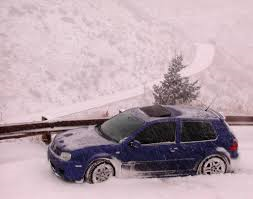These FREE and informative webinars are designed specifically for you and are hosted by your orientation trainers. Topics include travel tips, working vacations, communicating with your host family, activity ideas, homesickness, and much more. Don’t miss these important tips that will help you get the most out of your year! Continue reading
Tag Archives: tips
Keeping Our Kids Safe and Healthy This Summer
If you ask my children what they think their parents’ most important job is, they’ll say “to keep us safe and healthy.” We use that phrase to explain everything from why our daughter can’t cross street alone to why our son needs to go to sleep at night. While our children have been known to roll their eyes when they hear it, this all-purpose phrase is one that explains a lot of our decisions as parents. We encourage our au pairs to use it as well.
Yesterday, my son was worried about his upcoming swimming lesson, and I heard our au pair tell him that he was going to be safe because that was her job. Immediately, he smiled and relaxed a bit, and while he was still worried, he knew that he was safe because his au pair was there to keep him out of harm’s way.
Summer can be a wonderful time of year full of adventure and fun, but it can also be a time when routines are unsettled and rules are relaxed. I encourage you to think about ways that you can keep your children safe and healthy. The American Academy of Pediatrics’ Healthy Children website has many excellent articles on how you can help your family have a wonderful and healthy summer. Below are some highlights with links to the full articles.
Summer Safety (updated for 2016)
Sun Safety
- Keep infants 6 months or younger out of direct sun.
- Cover up with protective clothing and hat and dress in cool layers. Wear protective sunglasses.
- Play outdoors in the early morning and limit your exposure to sun between 10 am and 4 pm.
- Use a broad-spectrum sunscreen and apply it often.
Webinars for Au Pairs
May Host Family Tips
Several host families have asked me to share more about our experience as host parents. Of course every day is different and no two host families or au pairs are alike, but here are some ways we have found to successfully communicate with our au pairs.
1. Weekly meetings: We meet every Sunday evening with our AP to discuss schedules, the children’s behavior, and other issues. This helps my husband and me communicate as well, so we think it’s important for both host parents to attend these meetings. (We’ve also had meetings during the work week with my husband using Facetime from his office.)
2. Schedule: We use the weekly meeting to go over the upcoming week’s schedule and discuss future changes (vacations, etc.). An online calendar is critical for our planning purposes. Cozi works for us, but Google Calendar is great too. We schedule everything online for the kids- school drop-off and pick-up, playdates, haircuts, doctors’ appointments, etc. All 3 of us can access the calendar and know who is responsible for each event.
3. Texting: I work from home, and it’s easier if my kids don’t see me during the day, so my AP and I text a lot with each other. For example, if I need a snack, I’ll send our AP a text and give her time to take the kids to the basement or outside before heading to the kitchen.
4. Compliments: We use our meetings to compliment our au pair on areas we’ve found her to be particularly successful (even the smallest thing). This is really helpful when we need to address an issue that isn’t as positive.
5. Rewards: We look for ways to surprise our AP. Has she been great about entertaining the kids during a snow day? Did she soldier through a bad round of strep throat? Do we know she’s excited to see an upcoming movie? Starbucks gift cards, pedicure gift certificates, and movie gift cards go a long way to helping an AP feel appreciated and loved. (You can find discounted movie and restaurant gift cards at Costco.)
For more ideas, check out the Tips for Current Host Families on the APIA website.
May Au Pair Tips
The weather is getting warmer, the days are getting longer, and before too long, the kids will be on summer break. Here are a few things to think about as we look toward summer.
1. Weekly meetings: These are a perfect time for you to sit down with your host parents and review the weekly schedule, the children’s behavior, and other issues. APIA strongly encourages these meetings. If they’re not happening at your house, let me know and I’ll speak with your host parents.
2. Schedule: Summer is almost here. What does that mean for you? Now is the perfect time to review your work schedule and family agreements and think about how life might change this summer. Bring up questions you have about these changes in your weekly meetings.
3. Smart phones: Smart phones are great tools for staying in touch with your host family, finding directions, scheduling playdates, keeping track of your schedule, and taking pictures of your host kids to share with their parents. However, remember that you should never use your phone for anything else during work hours. Don’t do it.
For more tips for having a successful year, check out the ABCs document on our Facebook group page.
Tips For Winter Driving from AAA
AAA recommends the following winter driving tips:
- Do not drive when you are tired. Getting the proper amount of rest before taking on winter weather tasks reduces driving risks.
- Never warm up a vehicle in an enclosed area, such as a garage.
- Make certain your tires are properly inflated.
- Keep your gas tank at least half full to avoid gas line freeze-up.
- If possible, avoid using your parking brake in cold, rainy and snowy weather.
- Do not use cruise control when driving on any slippery surface (wet, ice, sand).
- Always look and steer where you want to go.
- Use your seat belt every time you get into your vehicle.
Tips for driving in the snow:
- Accelerate and decelerate slowly. Applying the gas slowly to accelerate is the best method for regaining traction and avoiding skids. Don’t try to get moving in a hurry. And take time to slow down for a stoplight. Remember: It takes longer to slow down on icy roads.
- Drive slowly. Everything takes longer on snow-covered roads. Accelerating, stopping, turning – nothing happens as quickly as on dry pavement. Give yourself time to maneuver by driving slowly.
- The normal dry pavement following distance of three to four seconds should be increased to eight to ten seconds. This increased margin of safety will provide the longer distance needed if you have to stop.
- Know your brakes. Whether you have antilock brakes or not, the best way to stop is threshold breaking. Keep the heel of your foot on the floor and use the ball of your foot to apply firm, steady pressure on the brake pedal.
- Don’t stop if you can avoid it. There’s a big difference in the amount of inertia it takes to start moving from a full stop versus how much it takes to get moving while still rolling. If you can slow down enough to keep rolling until a traffic light changes, do it.
- Don’t power up hills. Applying extra gas on snow-covered roads just starts your wheels spinning. Try to get a little inertia going before you reach the hill and let that inertia carry you to the top. As you reach the crest of the hill, reduce your speed and proceed down hill as slowly as possible.
- Don’t stop going up a hill. There’s nothing worse than trying to get moving up a hill on an icy road. Get some inertia going on a flat roadway before you take on the hill.
- Stay home. If you really don’t have to go out, don’t. Even if you can drive well in the snow, not everyone else can. Don’t tempt fate: If you don’t have somewhere you have to be, watch the snow from indoors.





